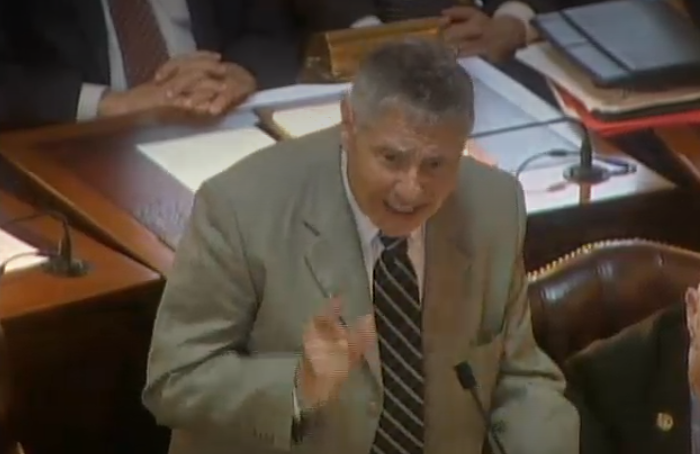
Raj Mukherji, a state senator from Hudson County, made an overall point.
“It’s just sad that we have to do this.”
This was officially about legal ads, but Mukherji’s lament was that his local newspaper, the Jersey Journal, will close early next year.
Newspapers have published legal ads – official government notices – for decades. They include budgets, ordinances, meeting notices and more. Cost is determined by the size of the ad and the newspaper’s circulation.
Plummeting print newspaper circulation has prompted talk of allowing these notices to be placed on government websites, which would save towns and school districts money.
The issue became more pressing about two months ago when the Star Ledger announced it would cease printing a newspaper as of next February. Two other papers – the Times of Trenton and the South Jersey Times – will follow suit.
So, how can legal ads be published in a printed newspaper if one does not exist?
The Warren County Commissioners made the issue even more pressing by filing suit against the Ledger and the Morristown Daily Record, seeking permission to put legal ads online. A hearing on the suit is set for Jan. 6 in Somerset County.
In the meantime, the Senate Judiciary Committee on Monday backed a very interim solution.
Beginning Jan. 1 and running through March 1, legal ads could be placed on a newspaper’s website. This would allow ads to be “published” in papers that will no longer have a print edition.
However, the cost will be the same as placing them in a newspaper.
That makes this proposal merely a stopgap. It gives towns and school boards, which hold reorganization meetings in early January, an outlet for legal notices. But it does not save them money.
So, a permanent solution will be needed after March. That likely will allow legal ads to be placed on a municipal or school district website.
This may solve the legal notice problem, but let’s go back to Mukherji’s point.
Hudson County, which has about 700,000 people and an unlimited amount of – shall we say – interesting politics, will soon have no daily newspaper. The Hudson Dispatch, which was based in Union City, closed decades ago,
This cannot be good for democracy. If you wish to blame anyone, blame corporate ownership of newspapers, whose concern is simple – squeeze as much profit as possible out of a publication by cutting and cutting and cutting. Local news is not a priority.
Politicians like to criticize the press. And let’s not forget that the Legislature and governor a few months ago gutted the state’s Open Public Records Act.
Still, one supposes there is an acknowledgment in Trenton that newspapers are important. After all, politicians certainly read them.
Now, some local papers are disappearing or ending print editions, which makes them less visible.
Mukherji was thinking about Hudson County, but his comment about a post-newspaper world was not limited to geography. He said at the close of Monday’s committee hearing:
“It speaks to an uncertain future.”
(Visited 39 times, 39 visits today)
As the political landscape in New Jersey shifts, lawmakers like Raj Mukherji are facing the end of an era in state politics. With long-standing figures like Governor Phil Murphy and Senate President Steve Sweeney announcing their departures from office, there is a sense of uncertainty and change in the air.
Mukherji, a Democratic Assemblyman representing the 33rd district, has been a vocal advocate for progressive policies and social justice issues during his time in office. He has worked tirelessly to address issues such as affordable housing, criminal justice reform, and healthcare access for all residents of New Jersey.
With the upcoming departure of Governor Murphy, who has served as a strong ally to Mukherji in advancing their shared policy goals, the Assemblyman will face new challenges in working with the incoming administration. Mukherji has expressed his commitment to continuing to fight for the interests of his constituents and pushing for meaningful change in the state.
The conclusion of an era in New Jersey politics also brings with it the opportunity for new voices and perspectives to emerge. As lawmakers like Mukherji navigate this transition, they will have the chance to shape the future direction of the state and make a lasting impact on its residents.
In the midst of this period of change, it is crucial for lawmakers to remain focused on the needs of their constituents and continue to work towards creating a more equitable and just society. Mukherji and his colleagues must be prepared to adapt to the shifting political landscape and find new ways to collaborate and advocate for the issues that matter most to the people of New Jersey.
As the era in New Jersey politics comes to a close, lawmakers like Mukherji will play a critical role in shaping the future of the state. By staying true to their values and remaining committed to their constituents, they can ensure that New Jersey continues to move forward towards a more inclusive and prosperous future.



